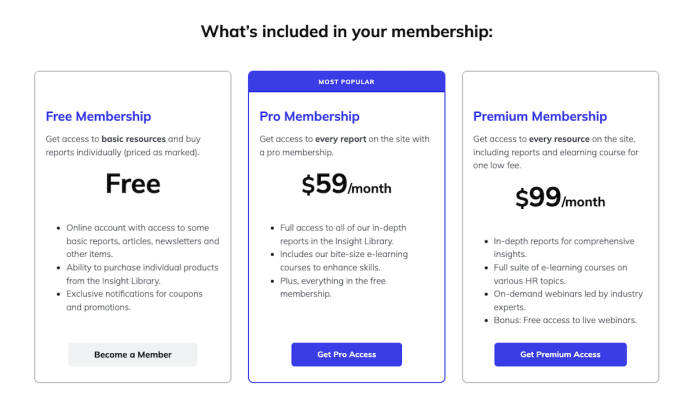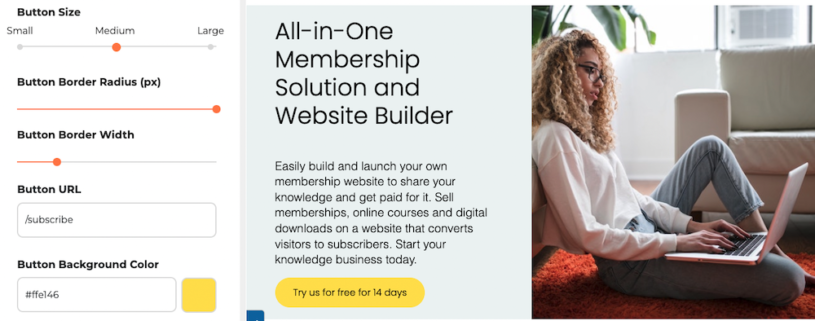Website or Social Media? Or both?
At some point most business owners find themselves thinking, “Do I really need a website?”
And at some point most business owners also find themselves thinking, “Do I really need to be on social media?”

DO I REALLY NEED A WEBSITE IN THIS SOCIAL MEDIA AGE? AREN'T WEBSITES 'PASSÉ'?
This popular misconception is not surprising given the extreme proliferation of social media sites and accounts. Let's look at some reasons why people might think this way.
TO HAVE OR NOT TO HAVE A WEBSITE -- SOME POPULAR MYTHS:
Myth#1: Only local and retail businesses need a website, so people know where the storefront is located.
Local and retail business websites should absolutely tell potential visitors how to get to the storefront if there is one.
The website should also display prominently the phone number and contact information. But there are many more reasons than that to have a website.
Myth #2: It's so difficult to get on page 1 of Google, you'd be better off to take out an ad in the Yellow Pages.
Getting on page 1 of Google takes effort, but it's not impossible. And you don't necessarily have to be on page 1. Searchers will look on page 2 and 3 if they aren't finding what they need on page 1, or just to see more options.
Taking out an ad in the Yellow Pages or anywhere else is not the answer either, as you have the challenge of steering people to view the ad. If the medium is not directly targeting your niche, you're wasting your money.
Myth #3: A Facebook page is all you need.
If you have decided to open a business today and you’re in a hurry to get the word out, you might want to start a Facebook page as your first order of business.
The reason is it’s quick and easy to do and if you have a personal profile, you can tell your friends about your business right away.
But there’s something missing….
Myth #4: You can put all the content needed on a social media platform.
Not so. Your brand and core services need an online hub where you can expand and expound on the benefits of your service or product, offer samples, and most importantly, capture email addresses for future communication.
That hub is your website.
Not convinced that you still need a website in the social media age?
In case you need some more reasons why you need a website, no matter what business you’re in, here are 8 more!
CREDIBILITY
You need a way to answer basic questions quickly and effectively - who you are, what your offer, and why you are the best choice in your industry.
You can’t do that effectively with random postings on a Facebook page, and definitely not on platforms where text is limited.
COMPETITION
Your competitors have websites. Studies have shown that 30% of consumers won’t even consider using a business that doesn’t have a website.
If you’ve ever been looking for a business on Google and found several million pages of results…how do you choose? An easy way to narrow down the selection is to look at only those who have a website. If you don’t have one, you could be tossed out of the equation.
SEO
Google is trying to help you! As difficult as that may be to belive, it's true. An SEO-optimized website has the best chance of appearing in a reasonable spot in Google search. And Google has all kinds of tools designed specifically to help searchers find your website listing, and to click on it.
These include indexing of YouTube videos, offering free Google Business Pages, and schema markups that you can use to make your Google listing stand out. You can even show an FAQ from your site on your Google listing. Social media posts and shares are generally not indexed by Google.
A BRAND SHOWCASE
A website allows you to display what you have to offer and why customers should do business with you and not your competition. You can address both new visitors and repeat customers on your site with different kinds of content, all leading to an email capture, sale or other action. Your brand can be showcased on your website with colors, graphics, fonts, images and layout. It's difficult to translate all that effectively on your social media platforms.
CONTROLLING THE NARRATIVE
On social media you are of course hoping to engage your audience and start a conversation. But what happens if the conversation takes an unexpected turn? Sometimes complaints are a great opportunity to set the record straight. But if you have your brand promise outlined on your website, you can at least control that story and present yourself in your best light.
CONTENT OWNERSHIP
Social media platforms are notorious for changing their policies at a moment’s notice. And not telling their users until the last minute, or after the changes have been made. You don’t have any guarantee that your social media account won’t one day be taken down or changed somehow with no warning. A website on the other hand, gives you the peace of mind knowing it’s yours and no one else can change it or take it down.
ESTABLISHING RELATIONSHIPS
Your website is the one place where you can effectively make it possible for someone to give you their email address to give you permission to contact them. That email will come through and if it’s one thing people do today on a daily basis, it’s check their email.
You can engage with folks on social media, but it’s much more difficult to do it in a way that truly develops a relationship. For that you need email. And websites and email go hand in hand.
MONETIZING MEMBERSHIPS
Everyone likes to belong to an exclusive club. And everyone knows that membership has its benefits. Your website is the ideal place to establish a competitive edge by offering visitors a way to have exclusive access to content for a recurring fee.
Does all this mean you shouldn’t be on social media?
NO!
Of course you should be. That is why the answer to the question, “Should I have a website or be on social media” at the outset of this blog is a resounding YES. It’s Yes to both.
But how do your website and your social media presence work together?
THE GOAL
The goal should be to drive visitors to your website via social media. That’s it, really. Now of course it’s not just a matter of typing your web address at the top of your Facebook page. The idea is to post on social media with a view to engaging more directly and intimately via email later.
THE HOW
How to get people to come to your website?
1) Strategic use of posts. Dont’ let the use of the word strategic scare you. It doesn’t mean you have to be salesy or ingenuous. On the contrary. You can design posts to educate, inform and engage. Eventually, your followers will feel comfortable enough to head over to your website and sign up for your email list or sign up for one of your membership levels.
2) Link to your site. Always put your website address on your Facebook page, and make sure you have social media connect icons with links on your website.
3) Invite sharing. Share buttons on blog posts on your website can be very effective in spreading the word about your site to your social media followers’ friends.
4) Social media advertising. Facebook ads are everywhere now, and with good reason. They work. The most strategic use of a social media ad campaign is to drive the visitor to the website to view a sales video and/or webinar. From there, you many be very close to a sale.
IN CONCLUSION
Every business on the planet can benefit from a website. Your website is the hub of your brand, and where you showcase your products and services, provide incentives to visitors and collect email addresses to build relationships. The added benefit of social media is to engage and steer followers back to the website, either via links, incentives or advertising.
Need a website? Open a free trial with SubHub and start using all the features that a website with membership levels built in can offer.




